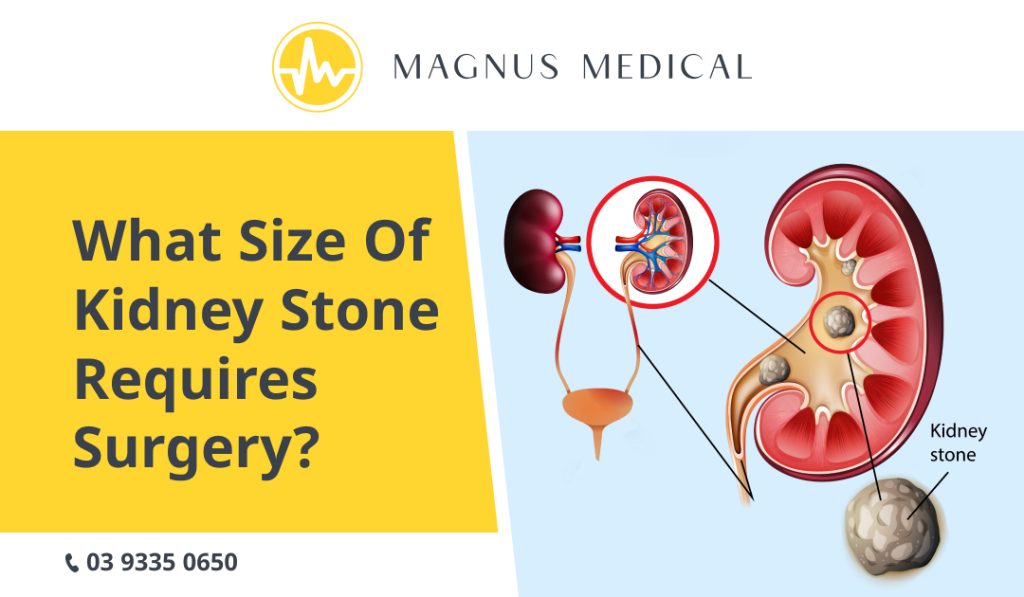
Stones formed in the urinary tract (ureter, kidney, bladder) are called urinary stones. Kidney stones are extremely painful. The treatment options for kidney and ureteric stones have evolved in the past two decades due to the invention of minimally invasive surgical options. Now, open surgery is rare. Furthermore, in this blog post, we’ll discuss what kidney stones are, how they are formed, and whether you need kidney stone surgery or if they can be treated with medications.
Kidney stones are crystalline stones formed in your ureters or kidneys. The ureters connect your kidneys to your bladder. Kidney stones are a common problem that can lead to severe pain. They are likely to be more common in males than females. There are different types of kidney stones. They can be made of:
• Calcium oxalate
• Calcium phosphate
• Uric acid
Cystine stones and struvite stones are less common types of kidney stones. Other names for kidney stones are:
• Renal calculi
• Nephrolithiasis
• Urolithiasis
If you're diagnosed with kidney stones and seeking treatment in Glenroy, Pathology Glenroy services can help. This may include urine tests, blood tests, and stone analysis to determine the cause of the stones and guide effective prevention strategies.
Your kidneys are an important part of your urinary system. They help in removing waste products from your blood to form urine. Urine contains many waste chemicals that can create a cluster of hard crystals. These hard crystals are known as kidney stones. You may experience kidney stones if:
• You don’t hydrate yourself
• You have a diet that contains meat and is high in salt
• You drink a lot of soft drinks
• You have had a kidney stone before
• Kidney stones run in your family
• You are obese or overweight
• A urinary tract infection can also cause kidney stones
Kidney stones can cause severe pain. Generally, the symptoms of kidney stones include severe pain in:
• one side of your back
• your lower tummy
• your side
If you have a kidney stone, you may experience the following symptoms:
• Inability to pee
• Blood in your pee
• Nausea and vomiting
• Fever or chills
• Feeling the urge to pee a lot
If you have a 6mm kidney stone, medical intervention is required. Some medications can dissolve some types of stones, such as cystine stones or uric acid. However, these medications are unable to dissolve calcium stones, which account for 80% of kidney stones. A 7mm kidney stone can cause a urinary tract infection, where surgical intervention is required. Surgical options include minimally invasive procedures and open surgery. However, open surgery is now rarely performed in developed countries because of the higher risk of postoperative complications.
Kidney stones measuring 6–7mm are considered to be of moderate size, not too large nor too small. Treatment options typically include medication or surgery, depending on factors like the type of stone, its effect on the kidney, the available medical equipment, and the physician’s expertise. For the most accurate diagnosis and suitable treatment plan, it's essential for patients to consult with a specialist at Magnus Medical Clinic, which is a popular Glenroy Medical Centre.
A 7mm kidney stone is unlikely to dissolve on its own, as most stones, especially calcium stones, cannot be dissolved by medication. Stones that lie between 6–8mm may have a minimal chance of passing naturally and often need medical or surgical intervention.
Under a microscope, kidney stones look like intricate and tiny crystalline structures with shapes that vary depending on their mineral composition, such as sharp, jagged, or hexagonal crystals for calcium oxalate and cystine stones.
Conclusion
If you notice symptoms of kidney stones, you must see a doctor at Magnus Medical Centre. If you’ve had kidney stones before, our doctors may suggest specific treatments to prevent future kidney stones. Our doctor’s advice will be based on the type of kidney stone and the severity of your condition.
Other Services: